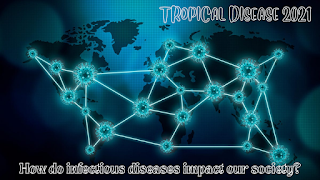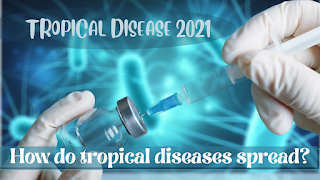How do infectious diseases impact our society?
Infectious diseases, particularly HIV/AIDS and malaria, have high economic impacts. Their rising toll on productivity as a result of deaths and chronic debilitating illnesses, reduced profitability and decreasing foreign investment has stifled certain poor countries' economic growth. Diseases have the potential to effect people not only physically, but also mentally, as contracting and living with a sickness can change a person's outlook on life. Natural causes refer to death caused by sickness. The majority of infectious infections have just modest side effects. However, some illnesses such as pneumonia, AIDS and meningitis can be fatal. A few infections have been related to an increased risk of cancer over time: Cervical cancer is connected to the human papillomavirus.
The World Health Organization put two infectious diseases, lower respiratory infections and diarrheal diseases in the top 10 causes of mortality globally. Climate change, globalisation and urbanisation are all variables that contribute to disease emergence and the majority of these causes are driven to some extent by humans. Pathogens vary in their susceptibility to emergence and quickly changing viruses are more common among emerging pathogens. Psychological and emotional functioning, disruption of leisure activities, impact on interpersonal relationships and financial resources are all repercussions of most chronic diseases on family members. A variety of environmental concerns can obstruct human health and well-being. Chemical pollution, air pollution, climate change, disease-causing bacteria, lack of access to health care, poor infrastructure and bad governance are among these challenges.People with chronic conditions such heart disease; stroke,
diabetes, cancer, obesity and arthritis have limitations in their function,
health, activity and work, which have an impact on their quality of life and
that of their families. All individuals close to the sick become anxious when a
family member becomes ill. Anxiety might be misconstrued by a health care
provider as a lack of interest or reluctance to assist and support the patient.
There's a lot of evidence that affluence correlates with improved health.
Recent research has discovered long-term links between increased income and a
variety of positive health outcomes, including lower mortality longer life
expectancy and lower chances of obesity, smoking, hypertension and asthma. Poverty
and poor health are inextricably linked. However, epidemiological research
reveals that high levels of inequality have a deleterious impact on the health
of even the wealthy, mostly because inequality decreases social cohesion, a
dynamic that leads to increased stress, worry and insecurity for everyone.




Comments
Post a Comment